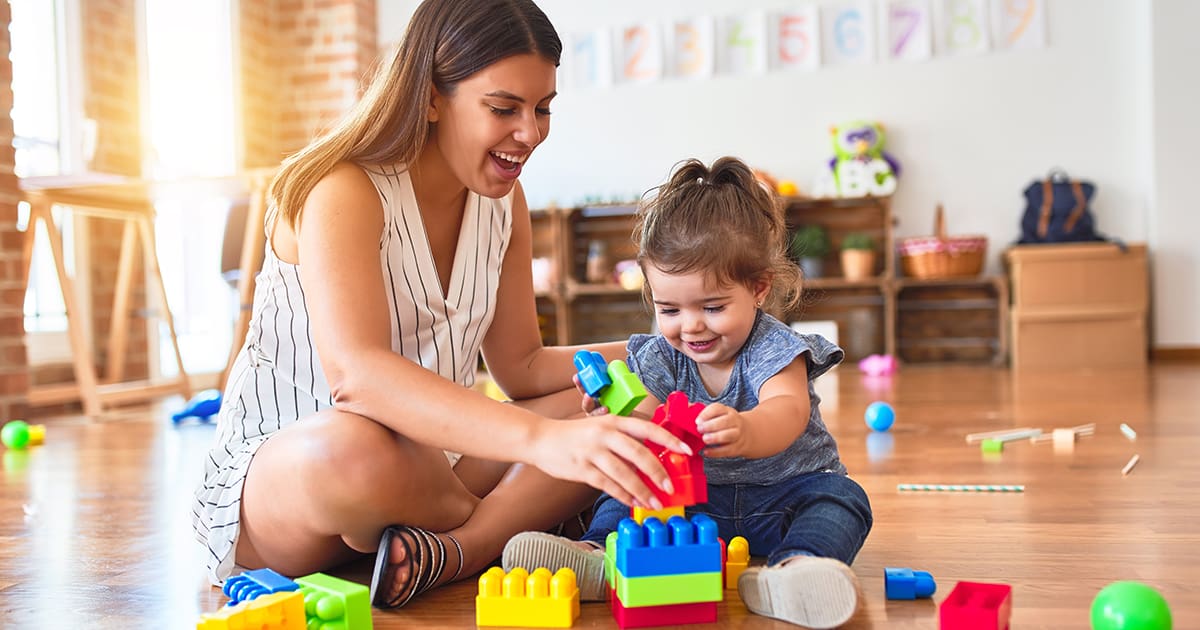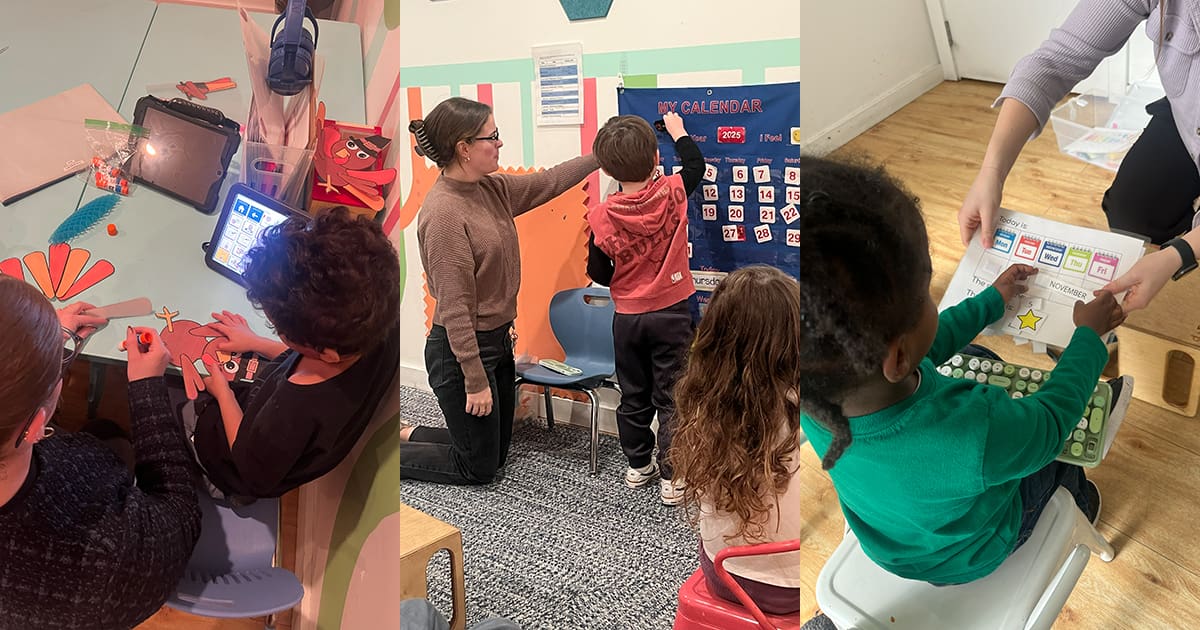Share this Post

Children naturally learn through play. Whether they are building towers, pretending to be superheroes, or creating imaginary worlds, play is more than just fun—it is a powerful tool for learning and development. Play-based therapy harnesses this natural instinct to help children build essential skills in communication, social interaction, emotional regulation, and problem-solving.
At CST Academy, we believe in the power of play to support children’s growth in a meaningful and engaging way. Through play-based therapy, children receive individualized support tailored to their needs while having fun in a safe and encouraging environment.
Understanding Play-Based Therapy
Play-based therapy is an evidence-based approach that uses play as a way to help children develop critical cognitive, social, emotional, and motor skills. This form of therapy is often used to support children with developmental delays, sensory processing challenges, autism spectrum disorder, and other conditions that impact learning and socialization.
Unlike structured, adult-led interventions, play-based therapy allows children to take the lead in activities while therapists provide subtle guidance to encourage learning and engagement. Through carefully designed play sessions, children practice real-world skills in a natural and enjoyable way.
How Play-Based Therapy Works
Play-based therapy is highly adaptable and can be tailored to fit each child’s specific needs. Sessions may involve open-ended play, structured activities, or interactive games that target specific developmental goals. Therapists use play as a way to introduce and reinforce key skills while ensuring that children feel safe, engaged, and motivated.
Some of the key components of play-based therapy include:
- Child-led interactions where the therapist follows the child’s interests
- Structured play activities designed to promote social, emotional, and cognitive growth
- Sensory play experiences to support children with sensory processing challenges
- Opportunities to practice problem-solving, communication, and collaboration
- Positive reinforcement and encouragement to build confidence and self-esteem
By integrating these elements, play-based therapy creates a fun and supportive environment where children can thrive.
Benefits of Play-Based Therapy
Play-based therapy offers a wide range of benefits for young children, helping them develop foundational skills that will serve them throughout their lives. Some of the most significant benefits include:
1. Enhances Communication Skills
For children with speech and language delays, play provides a natural way to practice verbal and nonverbal communication. Through interactive games, storytelling, and role-playing, children learn how to express their thoughts, respond to others, and engage in meaningful conversations.
Therapists may use play to:
- Encourage turn-taking and back-and-forth communication
- Expand vocabulary through play scenarios
- Improve articulation and sentence structure in a relaxed setting
- Help nonverbal children develop alternative communication methods
2. Strengthens Social and Emotional Development
Play-based therapy is an excellent way for children to practice social interactions and develop emotional awareness. Many children struggle with understanding social cues, recognizing emotions, or forming friendships, and play-based therapy provides a safe environment to build these skills.
Children learn to:
- Take turns and share with others
- Recognize and express emotions appropriately
- Develop problem-solving strategies for conflicts
- Build confidence in social situations
Through guided play, children become more comfortable navigating peer interactions and handling different social scenarios.
3. Improves Cognitive and Problem-Solving Abilities
Play encourages children to think critically, experiment with new ideas, and develop problem-solving skills. Many play-based activities involve puzzles, strategy games, or creative challenges that help children learn how to think flexibly and adapt to different situations.
Therapists use play to:
- Strengthen memory, attention, and reasoning skills
- Introduce concepts like cause-and-effect, sequencing, and categorization
- Encourage creative thinking through pretend play and storytelling
- Promote perseverance and resilience when faced with challenges
These cognitive skills are essential for both academic success and everyday problem-solving.
4. Supports Sensory and Motor Development
For children with sensory processing difficulties or motor skill delays, play-based therapy incorporates activities that help them regulate sensory input and develop better coordination and control over their movements.
Some activities used in therapy include:
- Sensory bins filled with textured materials like rice, sand, or water beads
- Obstacle courses that promote gross motor skills and balance
- Fine motor activities such as building with blocks, cutting with scissors, or stringing beads
- Movement-based games that encourage body awareness and coordination
By engaging in sensory-rich play, children become more comfortable processing different stimuli and improving their motor abilities.
5. Encourages Independence and Confidence
When children engage in play, they make choices, explore new ideas, and take on different roles, all of which help them develop a sense of independence. Play-based therapy encourages children to take initiative, try new activities, and build confidence in their abilities.
Therapists use positive reinforcement to:
- Celebrate small successes and build self-esteem
- Encourage decision-making and creative expression
- Support children in developing self-regulation and emotional control
As children grow more confident in play-based therapy, they become more willing to take on new challenges in school, at home, and in social settings.
Who Can Benefit from Play-Based Therapy?
Play-based therapy is beneficial for all children, but it is particularly effective for those with:
- Speech and language delays
- Autism spectrum disorder
- Sensory processing difficulties
- Anxiety or social challenges
- Developmental delays
- Attention and focus difficulties
The flexible and engaging nature of play-based therapy allows therapists to tailor activities to each child’s unique needs, ensuring they receive the best support for their development.
How CST Academy Uses Play-Based Therapy
At CST Academy, play-based therapy is an integral part of our therapeutic preschool program. Our highly trained therapists incorporate structured and child-led play activities to help children develop key skills while having fun in a supportive environment.
We focus on:
- Encouraging communication and language development through interactive play
- Supporting sensory processing and motor skills with engaging, hands-on activities
- Fostering social connections and peer interactions through group play
- Building confidence and independence through creative expression and problem-solving
Our approach ensures that every child receives individualized support to help them reach their full potential in a way that feels natural and enjoyable.
Helping Children Learn, Grow, and Thrive
Play is more than just a way for children to pass the time—it is a powerful tool for learning and development. Through play-based therapy, children can build essential communication, social, cognitive, and motor skills in a fun and engaging way.
At CST Academy, we are committed to providing high-quality, research-backed therapies that help children grow and succeed. If you are interested in learning more about how play-based therapy can benefit your child, contact CST Academy today. We are here to support your family and help your child reach their full potential through the power of play.
Discover Our Pediatric Therapy & Autism Care
ABA Therapy
Support for children with autism.
Autism Evaluation
Expert assessments to identify child needs.
Pediatric Therapy Services
Speech, Occupational, Feeding, and Physical Therapy.
Therapeutic Preschool
A classroom environment designed for early learners with unique needs.

Find the Best Care for Your Child




